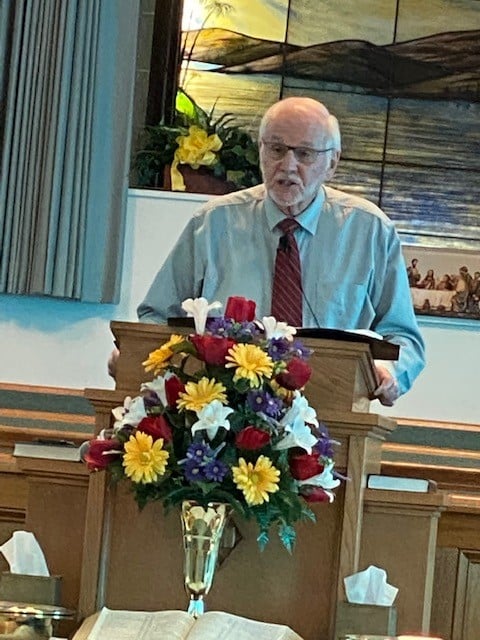Growing up, one thing I developed, early on, was a deep appreciation for how the hymns we sang in church spoke to me. Many were based on the scripture and those that weren’t still seem to be inspired, based on the messages they told. A few years back, I picked up a little book entitled “Living Stories of Famous Hymns” by Earnest K. Emirian. It gives the backdrop for many of these hymns and the circumstances that led to their writing. Here, I want to share the story for one of the most beloved hymns we all know.
The year was 1873 and Horatio G. Spafford of Chicago was scheduled to sail with his wife and his four daughters for France. But, as fate would have it, Mr. Spafford was unable to sail with his family. Just two years earlier, he had lost almost everything he owned in the Great Chicago Fire of 1871 and he had some business commitments that required his immediate attention. Not to be deterred, he resolved to send his family on ahead and promised to join them in France as soon as the meetings were over.
Even though he was glad that his family was travelling with Christian companions, he seemed to have a premonition that caused him to change their cabin reservation to one toward the bow of the “S. S. Ville du Havre,” the most luxurious ship afloat. Having made the change, the French liner set sail from New York on November 15, as he wished his family well. But seven days into the voyage disaster struck as the French vessel was rammed by the English iron sailing vessel, the “Lockearn.” The ship was nearly broken in two and went down in less than12 minutes. Only 26 of the 252 passengers were able to make it on to the “Lockearn”, which stayed afloat until another ship came to the rescue. All 4 of Mr. Spafford’s daughters were lost.
Nine days later, Mrs. Spafford arrived in Europe and cabled her husband with these words, “Saved alone.” In just over two years Horatio Spafford had lost his business and 4 of his daughters. When he received the message, he told one of his dear friends, “I’m glad to trust the Lord when it will cost me something.” As soon as he could, he booked passage on a ship to join his wife.
His ship set sail in December. A few days into the voyage, the captain called Mr. Stafford into his cabin and said, “I believe the place we are now passing over is where the ‘Ville du Havre’ went down.”
That night, Mr. Spafford couldn’t sleep. But evidently a deep peace came over him and there, in the middle of the Atlantic, out of his heartbreak and pain, he wrote the first of five stanzas to a hymn, which contained these words, When peace like a river attendeth my way, when sorrows like sea billows roll; whatever my lot, Thou hast taught me to say, “It is well, it is well with my soul.”
The Apostle Paul told the Thessalonians that when believers die, we are not to sorrow as those that have no hope (I Thessalonians 4:13). For the believer, death is just a transition into the presence of God (II Corinthians 5:8).
The night before Jesus was crucified, He told His followers, “Peace I leave with you. My peace I give unto you; not as the world giveth, give I unto you. Let not your heart be troubled, neither let it be afraid” (John 14:27). Paul referred to this “ peace of God, which passeth all understanding” in Philippians 4:7. Do you possess this peace that only Christ can give? Only those who know the Lord can truly appreciate and sing this hymn in the midst of their greatest tragedies.
For God’s glory and His alone,
Pastor Terry.


